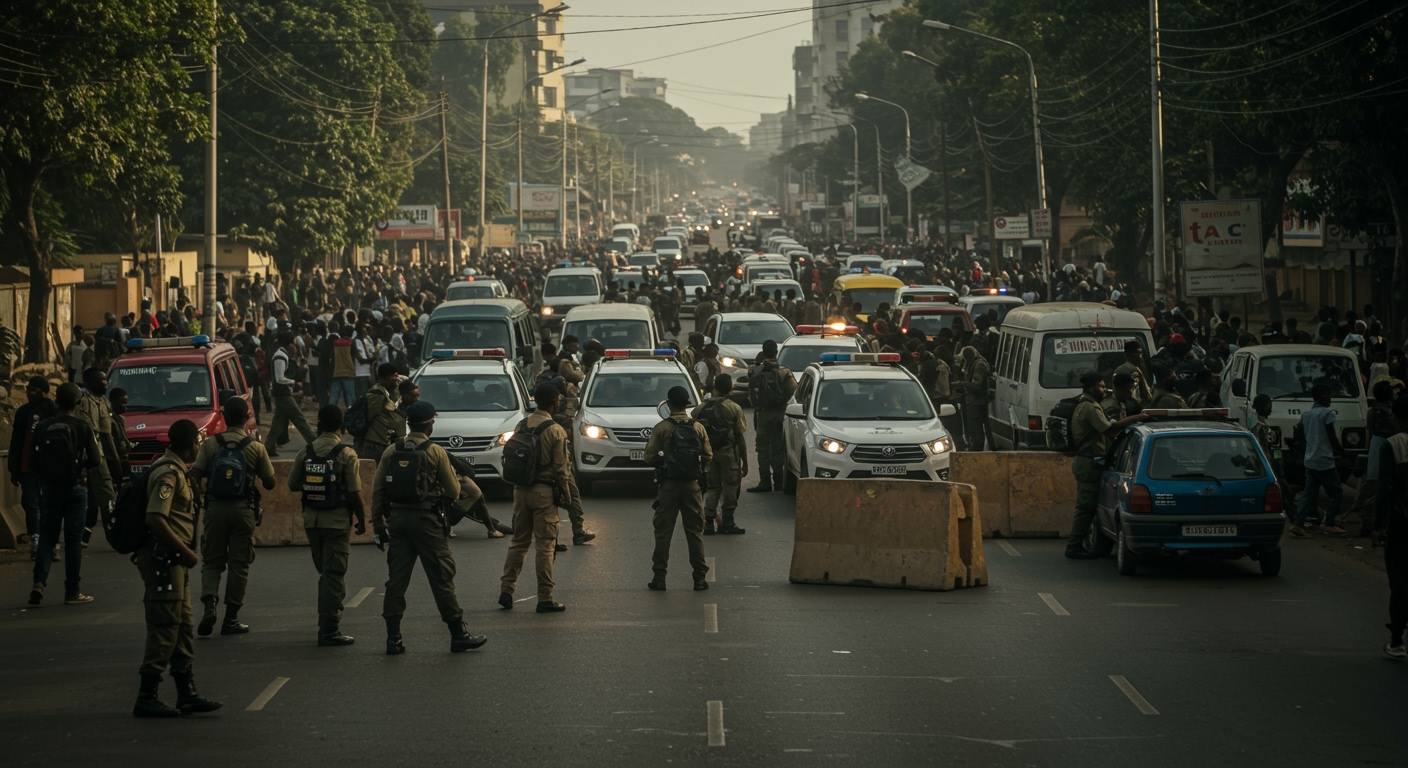NAIROBI, Kenya – Police blocked major roads across Kenya’s capital, Nairobi, on July 7, 2025, as the country marked the anniversary of pivotal pro-democracy protests that first erupted on this date 35 years ago, in 1990. The heightened security measures come amidst a climate of growing discontent among young Kenyans, fueled by persistent economic hardship, pervasive corruption, and widespread allegations of police brutality.
Echoes of 1990: A Nation’s Democratic Journey
The decision to block roads on July 7 evokes potent memories of the original rallies on July 7, 1990, a watershed moment in Kenya’s political history. Those initial demonstrations were a direct challenge to the autocratic rule of then-President Daniel arap Moi, demanding a return to multiparty democracy after years of single-party dominance. The courage of those protesters ultimately paved the way for significant political reforms and the eventual liberalization of Kenya’s political space.
However, three and a half decades later, a new generation of Kenyans feels that the promise of that democratic dawn remains unfulfilled, particularly in the realm of economic opportunity and accountability.
Current Tensions: Economy, Graft, and Brutality
The current wave of unrest, which saw violent clashes during demonstrations last month, is driven by deeply rooted frustrations. Young Kenyans, many facing high unemployment and dim economic prospects, view corruption within government as a major impediment to progress. Allegations of excessive force and impunity by law enforcement agencies further exacerbate public anger, transforming demonstrations against economic grievances into confrontations over human rights and state conduct.
Recent events underscore the volatile atmosphere. On Sunday afternoon, armed men reportedly disrupted a news conference held by the Kenyan Human Rights Commission, an incident widely seen as an attempt to suppress critical voices. Separately, the death of teacher and blogger Albert Ojwang in police custody in June became a flashpoint, triggering protests and demands for accountability.
Human Cost and Legal Proceedings
The human toll of the recent unrest has been significant. According to the government-funded Kenya National Commission on Human Rights, at least 19 people died during the demonstrations last month. The broader picture paints a grim reality, with reports indicating that at least 80 people have died in protests across the country since June 2024. Furthermore, dozens of individuals are reportedly being held under illegal detention, raising serious concerns among human rights advocates.
In response to the death of Albert Ojwang, prosecutors have taken action, approving murder charges against six people, including three police officers. However, all six defendants have pleaded not guilty, setting the stage for potentially complex legal proceedings that will be closely watched by the public and international observers.
Political Landscape and Future Uncertainty
Politically, President William Ruto, who was elected in 2022, appears to maintain a relatively strong position despite the public discontent. His administration has reportedly forged an alliance with main opposition leader Raila Odinga, a veteran figure in Kenyan politics. This political alignment has, for now, neutralized the traditional opposition challenge, leaving no apparent major challenger positioned for the next presidential election scheduled for 2027.
However, the current unrest highlights a disconnect between the political elite and a segment of the population, particularly the youth, whose grievances remain unaddressed. While the political class may have found a degree of stability, the underlying issues driving the protests – economic hardship, corruption, and police conduct – persist, posing a potential challenge to long-term stability.
As Nairobi’s roads remained blocked on July 7, 2025, the day served as a potent reminder not only of the historical struggle for democracy but also of the ongoing challenges Kenya faces in delivering on its promise for all its citizens, particularly amidst the pressing demands for economic justice and accountability.





